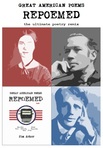A Quick & Easy High Impact Lesson
I’ve posted a few entries in my blog about introducing and teaching poetry to students, and with this entry I’d like to offer up a quick but powerful lesson a teacher can use with students who are, for whatever reason, reluctant to speak. Often times when dealing with poetry, students are hesitant to speak for fear of “being wrong,” and this lesson will very easily show students that it is safe to have a voice in your class discussion.
Here’s what you do:
1. Post the following four numbers on the board:
1991 1919 9191 1993
2. Ask students to look at the numbers and decide which one does not belong with the other three. Ask for a volunteer to give one number that does not belong and to explain the reason why.
3. As student volunteers give their responses, underline the numbers as each is given.
Responses could come in any order, so one student might say that “9191” does not belong.
1991 1919 9191 1993
Be sure to ask the reason why, and the student might say, “because the other three numbers are years.” Of course, “9191” will eventually be a year (assuming the Earth will still be around), so with additional conversation the student might add that the other three numbers all occurred during the 20th century.
Next, ask if there are other possible answers to which one number does not belong, and another student might say that “1993” does not belong.
1991 1919 9191 1993
Why? The student’s reason will be that that number is the only one of the four that includes a “3.”
Ask again if there are other possible answers. A third student might offer “1919”:
1991 1919 9191 1993
This time the reason will be that the four digit number includes a “1” in the “tens place” vs. a “9.”
After this discussion, three of the numbers on the board will be underlined: 1919, 9191, and 1993. At this point, ask if there are other possibilities or just circle the remaining number (1991) and say that the final number could be the answer because it is the only number of the four that is not underlined.
This very quick and easy lesson provides a powerful message – that different answers are fitting and appropriate if and when students provide supportive reasons behind their thinking – and that they can have a voice in the discussion of the interpretive work of analyzing poetry without the fear of being “wrong.”
Here’s what you do:
1. Post the following four numbers on the board:
1991 1919 9191 1993
2. Ask students to look at the numbers and decide which one does not belong with the other three. Ask for a volunteer to give one number that does not belong and to explain the reason why.
3. As student volunteers give their responses, underline the numbers as each is given.
Responses could come in any order, so one student might say that “9191” does not belong.
1991 1919 9191 1993
Be sure to ask the reason why, and the student might say, “because the other three numbers are years.” Of course, “9191” will eventually be a year (assuming the Earth will still be around), so with additional conversation the student might add that the other three numbers all occurred during the 20th century.
Next, ask if there are other possible answers to which one number does not belong, and another student might say that “1993” does not belong.
1991 1919 9191 1993
Why? The student’s reason will be that that number is the only one of the four that includes a “3.”
Ask again if there are other possible answers. A third student might offer “1919”:
1991 1919 9191 1993
This time the reason will be that the four digit number includes a “1” in the “tens place” vs. a “9.”
After this discussion, three of the numbers on the board will be underlined: 1919, 9191, and 1993. At this point, ask if there are other possibilities or just circle the remaining number (1991) and say that the final number could be the answer because it is the only number of the four that is not underlined.
This very quick and easy lesson provides a powerful message – that different answers are fitting and appropriate if and when students provide supportive reasons behind their thinking – and that they can have a voice in the discussion of the interpretive work of analyzing poetry without the fear of being “wrong.”
Published on June 18, 2012 04:13
No comments have been added yet.



